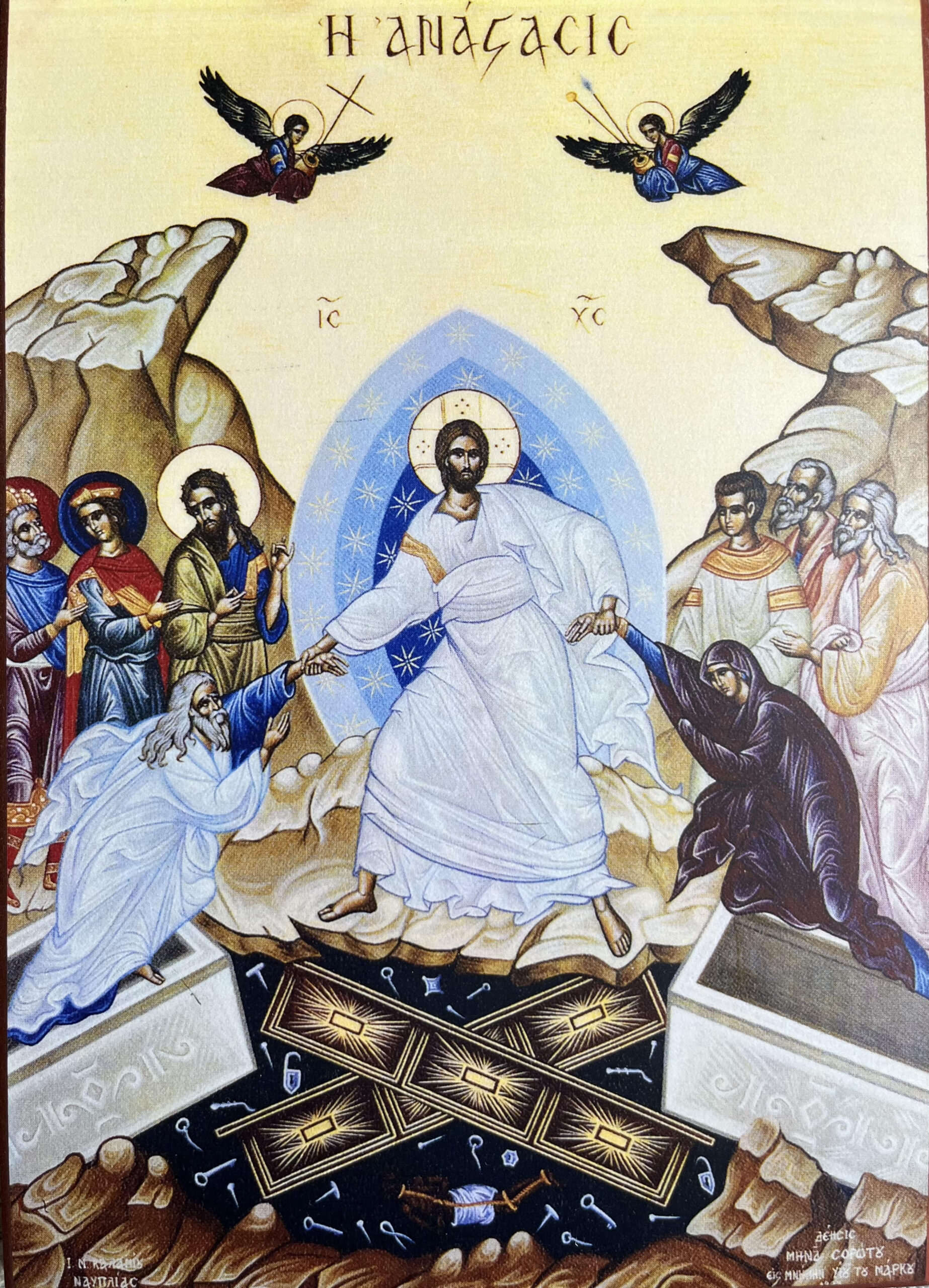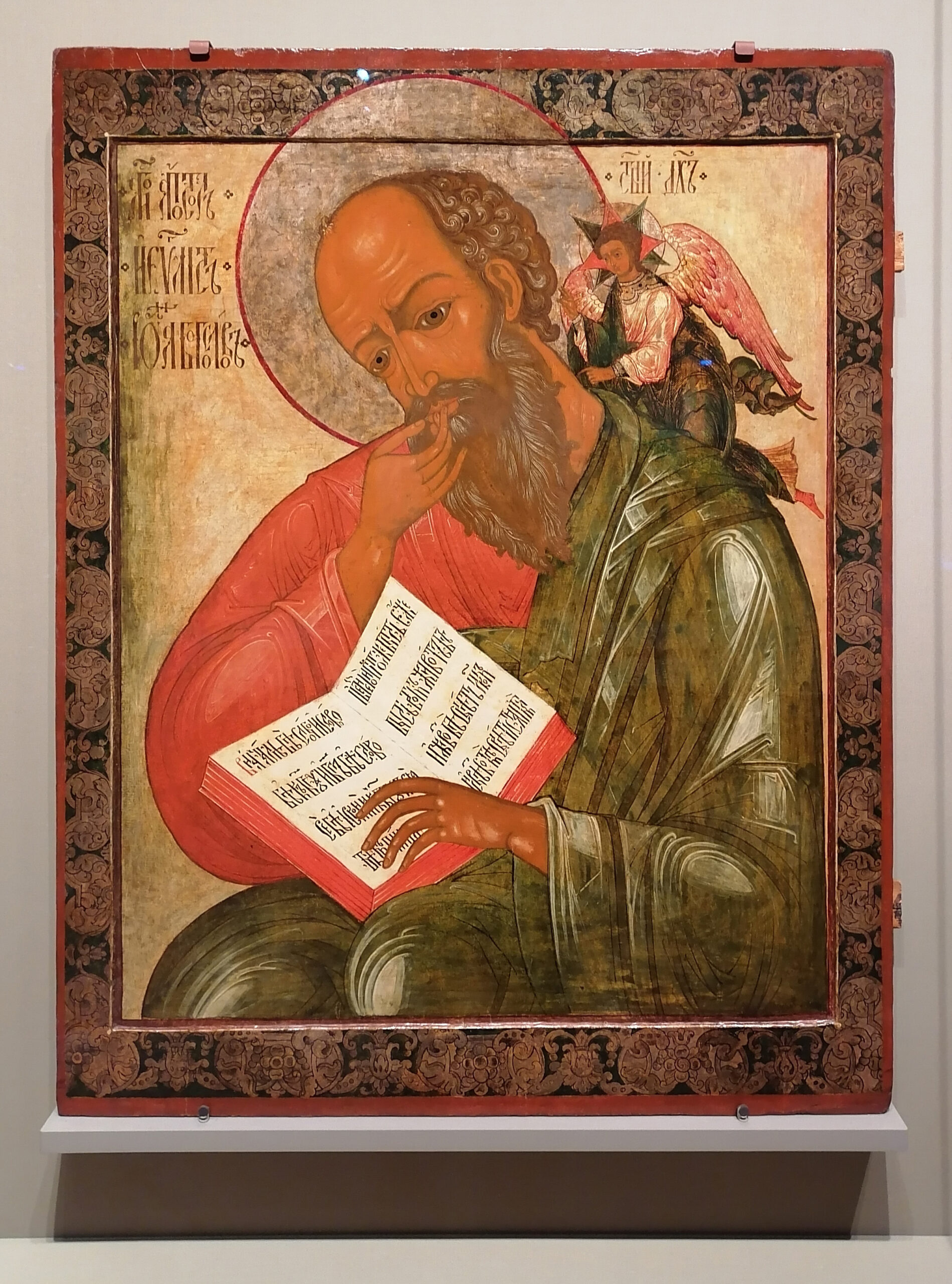Today, Judas is vigilant as to how he can deliver up the Lord, the Savior of the world before all ages, Who with five loaves satisfied the multitude. Today, the transgressor denies the Teacher; becoming a Disciple, He betrays the Master. He sold for silver, the One, Who satisfied His people with manna.
~6th Antiphon, The 12 Gospels, Holy Thursday Evening, Trans. by Fr. George Papadeas
—
Then one of the twelve, who was called Judas Iscariot, went to the chief priests and said, “What will you give me if I deliver Him to you?” And they paid him thirty pieces of silver. And from that moment he sought an opportunity to betray Him.
Matthew 26:14-16
The service on Holy Thursday evening is known by several names. It is the Orthros/Matins of Good Friday, it is called “The 12 Gospels” because of the twelve Gospel readings that are offered, and sometimes it is referred to as “The Passion Service” or “The Passion of Christ.” It is the longest service of the Liturgical year. It contains over 100 hymns, sung in all eight of the Byzantine tones, so it is a “Superbowl” of chanting.
Judas is mentioned in over twenty of the hymns in this service, mostly at the beginning. In my opinion, this is a little “overkill” on Judas. His betrayal does not seem to warrant the attention given to him, particularly when there are very few hymns about the Last Supper, the final teachings of Jesus, and Jesus praying in the Garden of Gethsemane.
The betrayal of Judas is an important event in the Passion of Christ, I just don’t believe it should be given the amount of attention it has been given in the hymns. The betrayal, in fact, is the first act of the “Passion,” so that is significant. One might argue that Jesus could have and would have been arrested even without the help of Judas. The lesson, however, as we have already mentioned, is that Judas was a trusted member of Jesus’ inner circle. In fact, he was the one who had the money bag that paid for their provisions. And in betraying Christ, it showed that even someone close to Jesus could transgress against Him. This is a warning for us as Christians, that no matter how devout we are in our faith, we may also be tempted to betray the Lord Whom we profess to love.
One thing I’ve wondered in recent years about Judas is how his slipping into the darkness of sin was not noticed by the other disciples. These men lived together and traveled together for three years. It would seem that they would know each other quite well, would know each other’s personalities and tendencies. How did no one see Judas slipping into darkness? How did no one have the thought to pull him aside to see what was going on? This also is a lesson to us, that we have to be vigilant in looking out for our friends. If this “friend” of the disciples could slip into a darkness so bleak that it would lead him to betray the Lord, I suppose anything is possible. Sometimes we can be close to someone and still not know the pain they are carrying. Thus, it is important to be vigilant and look for clues that someone might be slipping into a dark space.
Another lesson we learn from Judas is repentance. It makes me wonder how the story might have been different had Judas just repented. Surely, Jesus would have forgiven him. Why didn’t Judas ask for forgiveness? Why did he just give up? Did he think he was beyond redemption, that his sin was so big that it could not be forgiven? There is no one who is beyond redemption. No matter what we’ve done, we can always come back in repentance. In fact, life is all about repentance, as we will fall again many times into the same sins, and then need to come back and repent from them. We will all be tempted to betray others and to betray Christ. Sadly, most of us will commit the sin of betrayal, which we do when we gossip about others, or speak ill or falsely of them. The antidote to betrayal is not quitting, but repenting, changing, being more humble and more intentional about what we say or don’t say about other people.
The story of Judas leaves me with a question—If God created Judas, knowing that he would self-destruct and give up, then why bring him into the world at all? If God knows who is going to be saved and who is going to be condemned from the get-go, why create people that will end up condemned? This is one of those questions for which there isn’t a good answer. Which brings us to the final lesson of this reflection—There will be questions in life for which there won’t be answers. There will be questions in life for which answers may come far in the future, but there will be times where questions go unanswered. This is another instance when faith comes in. When we can’t see or fully comprehend a “why”, we just leave it to faith and keep walking.
The questions surrounding Judas will perplex me every Holy Week for the rest of my life. However, they should not, and do not detract from the story of salvation that is punctuated by the crucifixion and resurrection of Christ. The betrayal of Judas is a small part of the story. I just wish it wasn’t such a big part of the “Greatest Story Ever Sung.”
Let us present our senses pure to Christ, and as His friends, let us offer our souls to Him. Let us not, like Judas, choke ourselves with the concerns of this world, but from our innermost depths, let us cry out: “Our Father, in heaven, deliver us from evil.” (1st Antiphon, 12 Gospels, Holy Thursday Evening, Trans. by Fr. George Papadeas)
As we chant about the betrayal of the Lord by Judas, let us be vigilant that we do not betray the Lord, or one another, by our words and actions. I’m reminded of a poem by Hester Cholmondeley, called “Betrayal” which says:
Still as of old, men by themselves are priced.
For thirty pieces Judas sold himself, not Christ.

